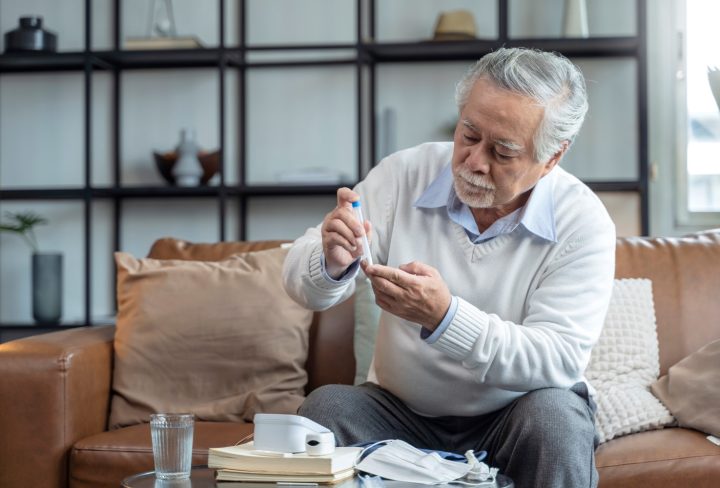Diabetes is a chronic condition that can have a significant impact on the quality of life of those affected by it. Over 422 million people globally have diabetes, which is the primary cause of blindness, kidney failure, and lower limb amputation. Type 2 diabetes can often be reversed (medically known as remission of diabetes) by adopting a healthy diet and increasing physical activity.
Research has shown that some people can make it reversible by making changes to their lifestyle.
These changes include losing weight, modifying diet, increasing physical activity, and bariatric surgery. Fasting has also shown some promise in reversing type 2 diabetes. However, it’s important to note that while remission is possible, it is not a permanent cure.
First Step-Lifestyle Changes for Diabetes Reversal
The first step to reversal is to make lifestyle changes that promote healthy eating and regular physical activity.
- Eating a balanced diet rich in plenty of fruits, vegetables, and whole grains is important for maintaining blood sugar levels at optimum levels.
- Regular exercise, like walking or swimming, can also help to reduce insulin resistance and improve blood sugar control.
Can Losing Weight Reverse Type 2 Diabetes?
- Losing weight is the key to reversing type 2 diabetes.
- Aim for 800-1200 calories per day, with a focus on nutrient-dense, low-carbohydrate foods.
- Regular exercise can also improve insulin sensitivity and help maintain weight loss.
- Speak to a doctor before making any major dietary or lifestyle changes.
Exercise to Help Reverse Type 2 Diabetes
- Physical activity combined with a modest, lower-calorie diet can help improve diabetes.
- Aim for 10,000 steps a day and at least 2 1/2 hours of moderate exercise a week, along with cutting 500-750 calories a day to reach near-normal blood sugar without medication.
Bariatric Surgery for Type 2 Diabetes Reversal
- This surgery helps limit how much you can eat by changing your stomach and digestive system.
- Researchers estimate that upwards of three-quarters of people see their diabetes reversed after bariatric surgery.
Fasting & Type 2 Diabetes Reversal
- Therapeutic fasting involves going without food and drink with calories for a set amount of time.
- Following a diet program of three 24-hour fasts each week for several months has shown promising results.
- Eating low calories 2 days a week and a normal diet the other days also helped people with type 2 diabetes lose weight and lower their blood sugar levels.
It’s important to note that while these lifestyle changes can help reverse type 2 diabetes, there is no permanent cure for the disease. However, these changes can help manage diabetes and improve overall health.
Role of Medication
In addition to lifestyle changes, medications might also be required for few people to keep the blood sugar levels at the optimum level. These medications help to reduce insulin resistance and improve the body’s ability to use insulin. They can also reduce the amount of glucose in the bloodstream, which helps to keep blood sugar levels under control.
Addressing Conditions that Increase Risk of Diabetes
Finally, it is important to address any underlying medical conditions that may be contributing to your diabetes. Conditions such as:
- Obesity
- High blood pressure
- High cholesterol
The above conditions can all increase your risk of developing diabetes and can make it more difficult to reverse the condition. Treating these conditions can help to reduce your risk of complications from diabetes and improve your overall health.
While it is possible to reverse the symptoms of diabetes through lifestyle changes such as exercise and a healthy diet, it is important to understand that diabetes reversal is not a cure. Diabetes reversal essentially means that a person has successfully managed to lower their blood sugar levels to a healthy range through lifestyle changes or medication. However, if the person were to go back to their old habits, their blood sugar levels could rise again, and they would be considered diabetic once more.
Monitoring HbA1c Levels
To ensure that diabetes remains under remission (reversal), it is essential to monitor blood sugar levels and HbA1c levels regularly.
This helps to ensure that blood sugar levels remain within a healthy range, and that any necessary adjustments can be made to the treatment plan in a timely manner.
Therefore, it is important for individuals with diabetes to continue to make healthy lifestyle choices and to work closely with their healthcare team to monitor and manage their condition for their lifetime. With the right approach, you can take control of your health and reverse your diabetes.
“Diabetes is not a life sentence. With the right diet and lifestyle changes, it is possible to reverse diabetes and achieve a healthier, happier life.”



